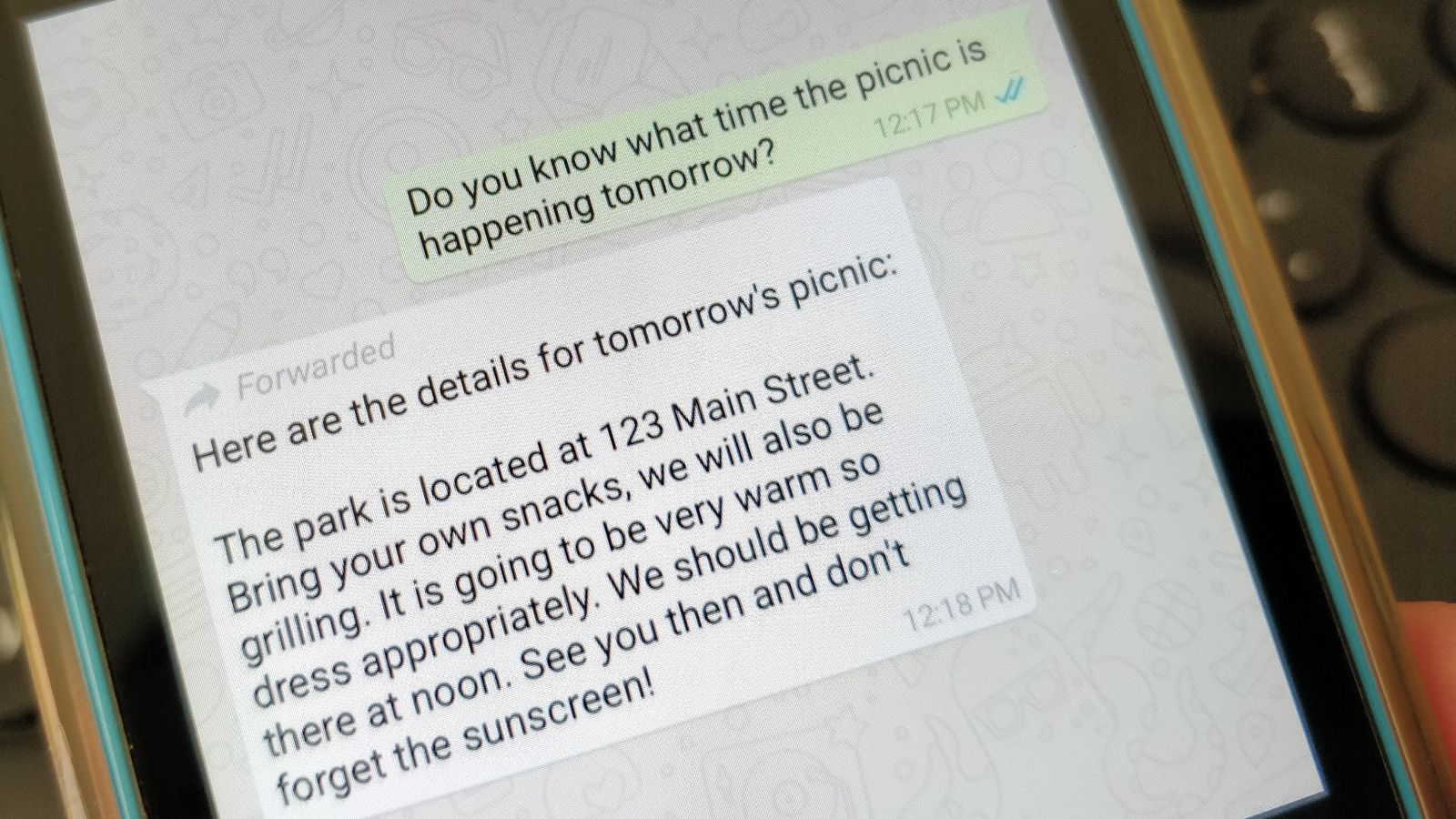
WhatsApp Now Labels Forwarded Messages To Fight The Growing Fake News Problem
- WhatsApp acted quickly to try and counter the spread of fake news after a request from authorities.
- One tactic is to label forwarded messages so users can see which messages have the potential of being fake news.
- Most likely this won't be enough to solve the problem and can backfire too.
In the past week, Whatsapp launched a huge campaign to try and prevent the spread of fake news. Why? Because reports state the platform gets used to spread unreliable facts and even messages that instigate violence. There's a possibility that fake rumors were part of the reason for 12 people's deaths in India. This led to authorities asking for the platform's assistance in fighting violence in the country.
Whatsapp's plan is to help people identify possible fake news messages, instead of believing everything that appears on their mobile devices. News stories meant to aggravate certain groups will hopefully then have less impact. Firstly, WhatsApp placed ads in local newspapers to educate communities about the problem. Now the brand also changed its functioning. Each message, whether it's text, a video or an image, will have a label 'forwarded' if someone passed on a received message. The hope is that people would question these messages and investigate before accepting it as truth.
Image courtesy of VentureBeat
But is this enough? There is the chance that some users believe only worthwhile information is forwarded. This label could give some stories even more power than before. In light of this, it's clear that Whatsapp can't stop here.
Some may ask why the platform doesn't simply stop certain messages from being sent out. It's not that easy. On the one hand, consumers and governments demand privacy for users on social media. Facebook just got flack for not protecting people's information and privacy. On the other hand, people want platforms to protect consumers through censorship. Can both happen?
Accessing people's private messages isn't an option; that's what WhatsApp's valued end to end encryption is for. Even censoring topics is difficult. Who decides which topics should be off limits?
Do you have any ideas? Let us know in the comments below. Also, to get instant tech updates, follow TechNadu’s Facebook page, and Twitter handle.








